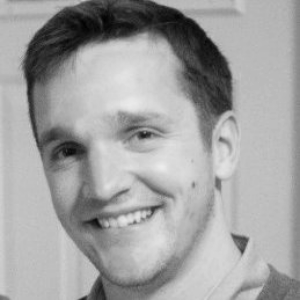In December 2021, RQM+ acquired AcKnowledge Regulatory Strategies (AcKnowledge RS), a San Diego-based firm specializing in regulatory affairs consulting for the medical device and IVD industry. The integration of this impressive team enhances the extensive RQM+ network of current and former FDA reviewers, scientists, engineers and regulatory and quality experts, and adds additional expertise with FDA submissions. The author of this post is a member of this team, which has done significant work with novel and/or high-risk devices focusing on pre-submissions, 510(k)s, IDEs, PMAs, De Novos, Breakthrough Designation Requests and Safer Technology Program Requests.
This #FDAFriday series consists of mini-interviews with former FDA regulators. Our goals are twofold: (1) help students and professionals interested in Regulatory Affairs see what career paths are possible, and (2) talk about some of the various roles at FDA to demonstrate the diversity of responsibilities at the Agency.
If you are a former FDA employee and would like to participate, please email us at info@acknowledge-rs.com.
"In speaking with industry, both as an employee and as a consultant, there is a misconception that the FDA reviewers are intentionally obstructive or unqualified to review the submission. This is entirely untrue."

Michael graduated Summa cum Laude from University of Pittsburgh with a degree in Bioengineering before receiving his Masters of Science in Biomedical Engineering from University of Alabama at Birmingham. He started at FDA in 2009 where he first worked in the Office of Device Evaluation before moving to the Office of the Commissioner. After leaving FDA he worked for Biotronik as a Regulatory Specialist before starting his own consulting company, Nilo Medical Consulting Group.
Tell us a little bit about your time at FDA.
I started at the FDA in November 2009 as a lead reviewer in the Dental Devices Branch in the Office of the Commissioner. While I was there, I reviewed devices like dental implants, abutments, adhesive materials, and bone grafts. I also helped develop a Memorandum of Understanding between the FDA and National Institute of Health to facilitated interaction between the two agencies. This led to grant collaboration for new companies and a network of experts for panel-track PMA submissions. I also co-led (with Michael Mendelson, DDS) a project to determine the failure mode of dental hand pieces which have been shown to overheat during use causing severe burns to the patient’s mouth.
After 15 months in Dental Devices, I began to work in the Interventional Cardiovascular Devices Branch(ICDB) as a lead reviewer, splitting my time between the two branches. I moved to ICDB full time in January 2012. In ICDB, I examined pre-market submissions for cardiac medical devices, specifically devices that are inserted into the coronary arteries and the devices used in the interventional procedure. Drug eluting stents, atherectomy systems, percutaneous transluminal coronary angioplasty balloons, guide catheters, and embolectomy catheters are just a few of the devices that I was responsible for reviewing. I worked closely with the pediatric devices working group within the Division of Cardiovascular Devices and promoted pediatric issues within CDRH.
My final role at the FDA was in the Office of the Commissioner, working to develop guidance for proper evaluation and reporting of age-, race-, and ethnicity-specific data within medical device clinical studies. This guidance was finalized and published just this year.
What experience do you think helped you be a successful regulator at FDA?
I believe that my education and experience as a Biomedical Engineer at the University of Pittsburgh helped prepare me for the knowledge needed to review devices as well as (and more importantly) the ability to lead and participate in large, multi-disciplined teams. The other experience that helped more than I thought it would, was being a referee and umpire growing up. Having authority and being confident in my decisions in the face of disagreements was important, especially as a new reviewer.
What are you up to now?
In November 2016, I started my own consulting company, Nilo Medical Consulting Group, which is aimed at helping medical device companies navigate the regulatory process both in the US and abroad. I’ve helped with regulatory strategy, submissions, and training in large and small companies across all classes of devices. In addition to my own company, I also work closely with other excellent consulting groups like Network Partners and Vision28.
What's something that you learned from FDA that helped you in your current position?
My knowledge of the FDA processes and people is essential to my current consulting position. Recognizing the time constraints, background knowledge, and approaches of a typical reviewer, I’ve been able to (hopefully) prepare and train others to prepare submissions that make it as easy as possible for an FDA reviewer to do their job.
What do you think is a common misconception about FDA reviewers?
In speaking with industry, both as an employee and as a consultant, there is a misconception that the FDA reviewers are intentionally obstructive or unqualified to review the submission. This is entirely untrue. FDA reviewers are scientists, doctors, engineers etc. that have the protection of public health as their main interest. They look at a wide variety of devices, from companies across the globe, each with their own processes and rationales. It’s important to recognize that both FDA and industry have the same goal, and helping agencies understand your thinking is an important part of working in regulatory affairs.
What is some advice you can give to a person interested in regulatory affairs?
Don’t be afraid to ask everyone questions. To work in regulatory, you should have a working knowledge of all aspects of a product life cycle, from research to sales. The more you know about each aspect of a work stream, the better you can help ensure that the quality system is maintained; and the better you can explain things to a regulator.
More about Michael Nilo, MS
For more information about Michael, please visit the Nilo Medical Consulting Group, or his LinkedIn page.


